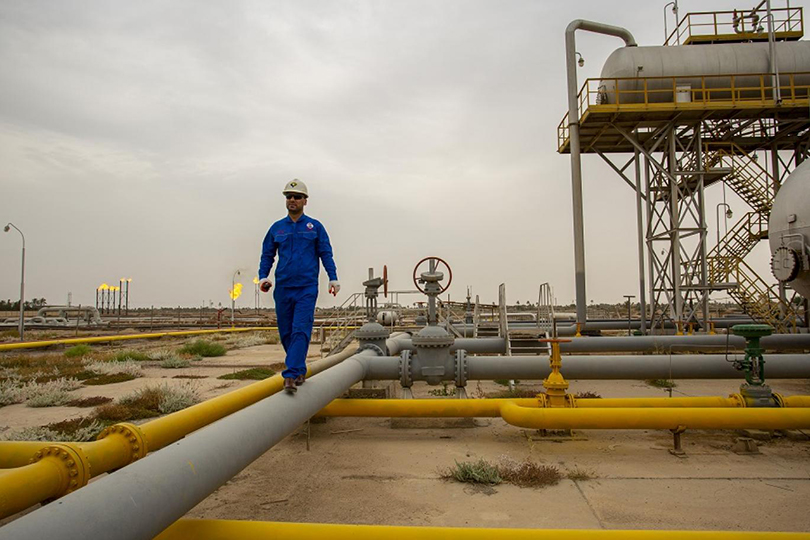By: Muhammad Abdul Jabbar Al-Shabout
In light of the economic challenges Iraq is facing, it has become imperative to develop a distinctive economic model that aligns with the country’s specific economic and cultural context—especially as Iraq is rich in both natural and human resources. One of the most pressing challenges is Iraq’s heavy dependence on oil, which accounts for over 90% of the state's revenues. This overreliance on a single sector—oil—has made Iraq highly vulnerable to global oil price shocks and has led to sharp economic fluctuations on numerous occasions.
Therefore, there is a clear need to formulate a unique economic theory or school of economic thought tailored to Iraq. This theory should prioritize the transition from a rentier economy to a productive one that leverages the country’s diverse and abundant resources.
From Rentier to Productive Economy
The shift from a rentier economy—one primarily dependent on oil revenues—to a productive economy requires structural economic reforms and policies. Iraq possesses vast natural wealth, including natural gas, minerals, and fertile agricultural land, along with a significant human capital base composed of a young and diverse labor force.
Establishing a Diversified Economic Base
Fully capitalizing on these resources necessitates building a diversified economic foundation. This involves focusing on key sectors such as manufacturing, agriculture, mining, and tourism. Incentives and encouraging policies are essential to attract private sector investment, both domestic and international, to reduce Iraq’s continued dependence on oil.
Ensuring Social and Economic Justice
A central aim of Iraq’s economic theory should be to achieve social and economic justice. For decades, Iraq has suffered from a deeply unequal distribution of wealth. Many citizens live in impoverished areas with limited job opportunities and inadequate services, while other regions benefit disproportionately from the nation’s resources. Economic policies must therefore incorporate the principles of social justice through:
Regional equity: Ensuring fair distribution of opportunities and resources across all Iraqi provinces.
Transparency and accountability: Combating corruption and ensuring fairness in wealth distribution.
Education and vocational training: Enhancing the skills of Iraqi workers through market-oriented educational programs.
Investing in Natural and Human Resources
Iraq is one of the wealthiest countries in terms of natural resources. However, the key challenge lies in investing these resources to significantly improve the standard of living for all Iraqis. Additionally, Iraq’s youthful population represents a tremendous asset for industrial and technological advancement. Realizing this potential will require major investments in education, training infrastructure, and the healthcare system.
Hence, the proposed economic theory must treat Iraq’s natural and human capital as the fundamental pillars of sustainable development.
Encouraging Foreign Investment While Preserving National Sovereignty
Attracting foreign investment is vital for economic development, but it must be framed within safeguards that preserve national sovereignty and empower Iraq to control its resources. Foreign investment should align with national interests, and include:
Effective partnerships with local companies: Encouraging foreign investors to collaborate with Iraqi firms and ensure the transfer of technology and knowledge.
Protecting domestic industries: Supporting the competitiveness of Iraqi private sector companies against foreign firms.
Balancing global economic integration with national economic autonomy.
Transition to a Knowledge-Based and Technological Economy
It is crucial for Iraq to invest in its scientific and technological capabilities, especially amid the global shift toward a knowledge-based economy. Promising opportunities exist in sectors such as information technology, artificial intelligence, and renewable energy. These fields not only have global relevance but also offer a promising future for Iraq, particularly through the engagement of its scientific and youthful talent.
The Importance of Structural and Political Reforms
Economic transformation cannot occur without comprehensive structural reforms across economic and political sectors. These reforms must include the modernization of fiscal and monetary policies, development of a robust tax system aligned with Iraq’s capabilities, and the enactment of legislation to support market economies and foster small and medium-sized enterprises.
Civilizational Economy as a Path to Transformation
In pursuit of this transformation, the concept of a “civilizational economy” offers an ideal alternative. It is based on high values surrounding five foundational elements of civilization: human beings, land, time, knowledge, and labor. This approach not only promotes economic growth but also integrates it with social and cultural values.
A civilizational economy can ensure social justice, sustainable development, and the transition from a rentier economy to one grounded in productivity and innovation. This strategy strengthens Iraq’s ability to diversify its economy through integrated use of both human and natural resources.
Conclusion
Based on the issues discussed, it is clear that Iraq is in urgent need of an economic theory tailored to its specific characteristics and realities. Such a theory should focus on transitioning from a rent-based to a productive economy, promoting the investment of natural and human capital, ensuring social justice, and encouraging strategic foreign investment. By seriously adopting and implementing these policies, Iraq can lay a strong foundation for its economic future and achieve meaningful progress in sustainable development and prosperity for its people.






Comments